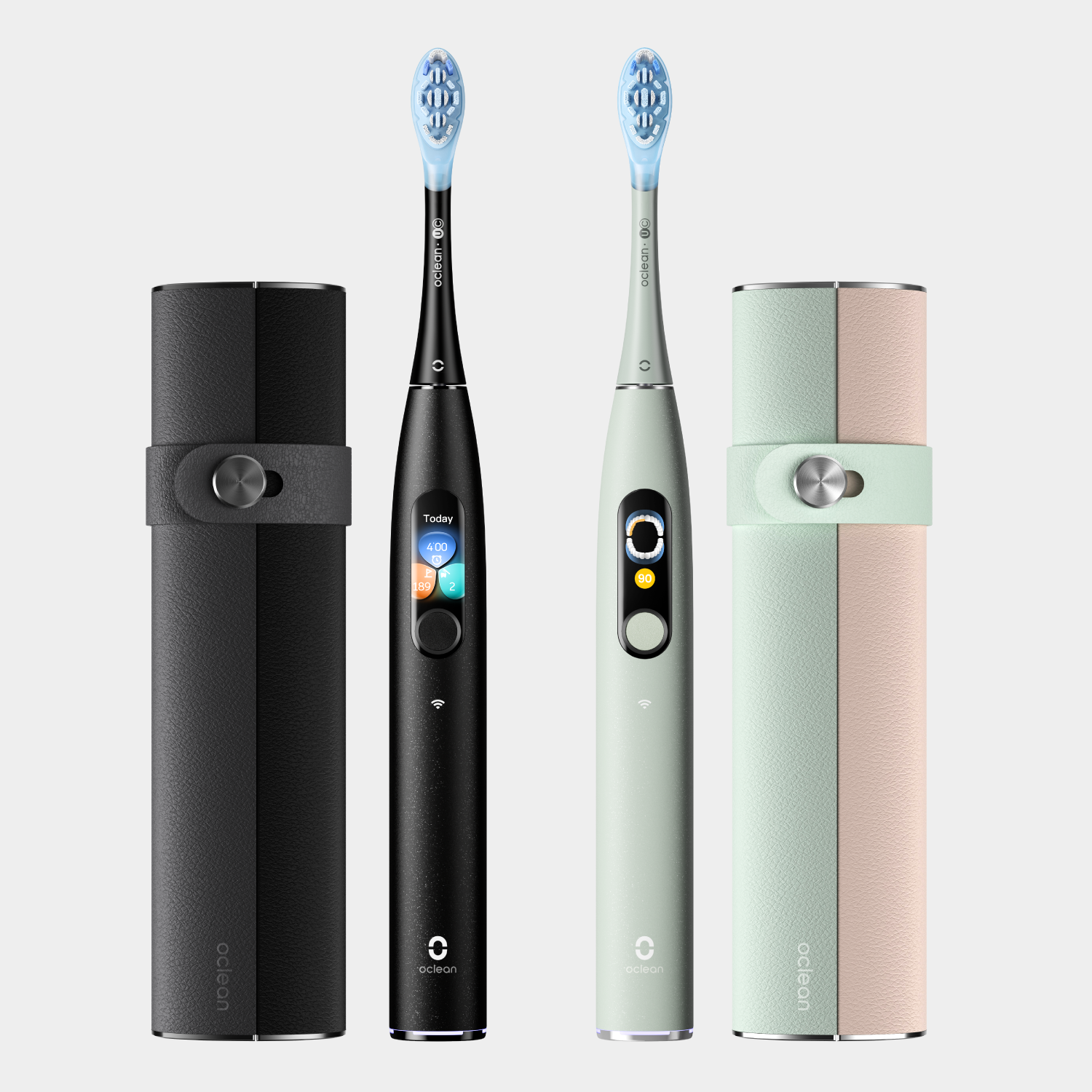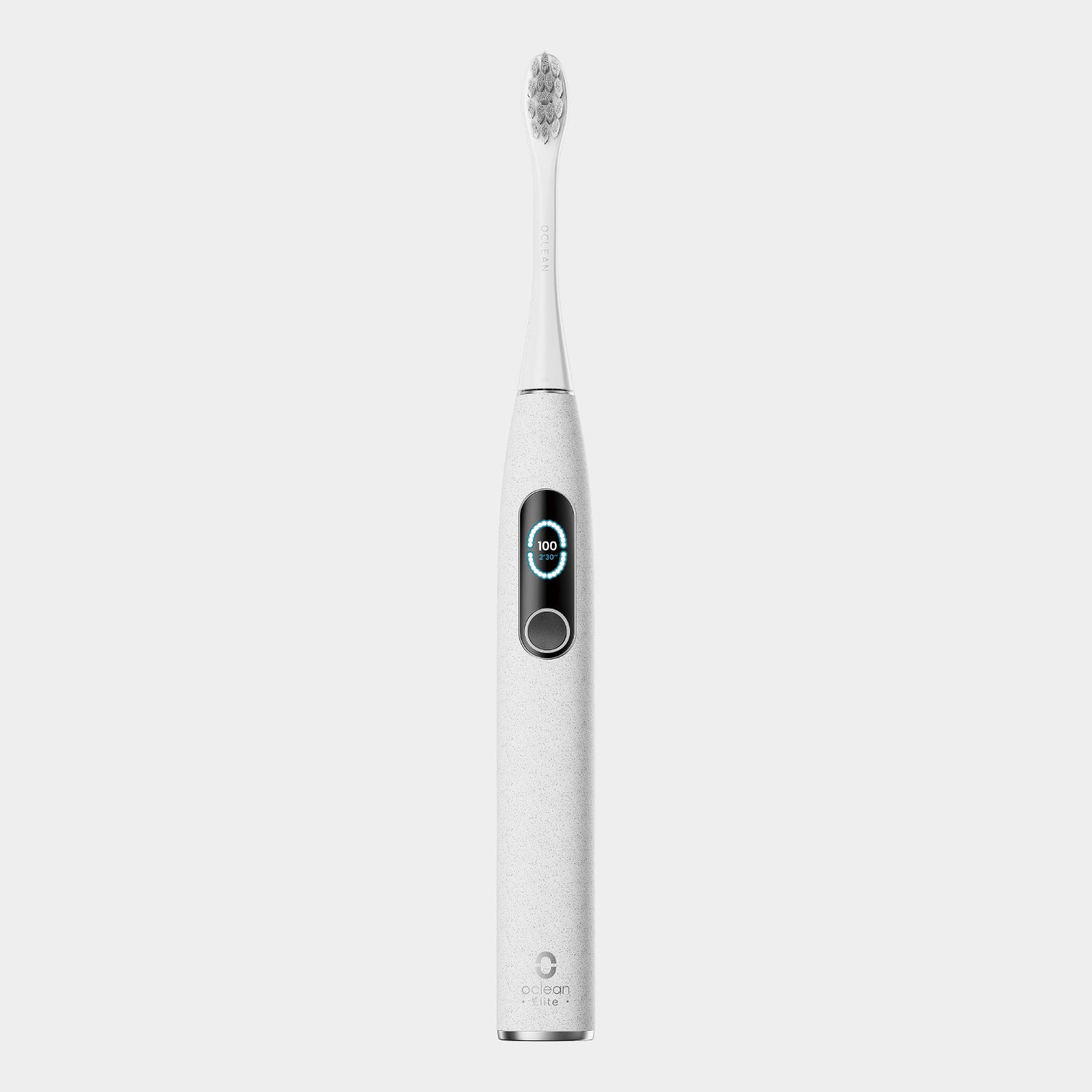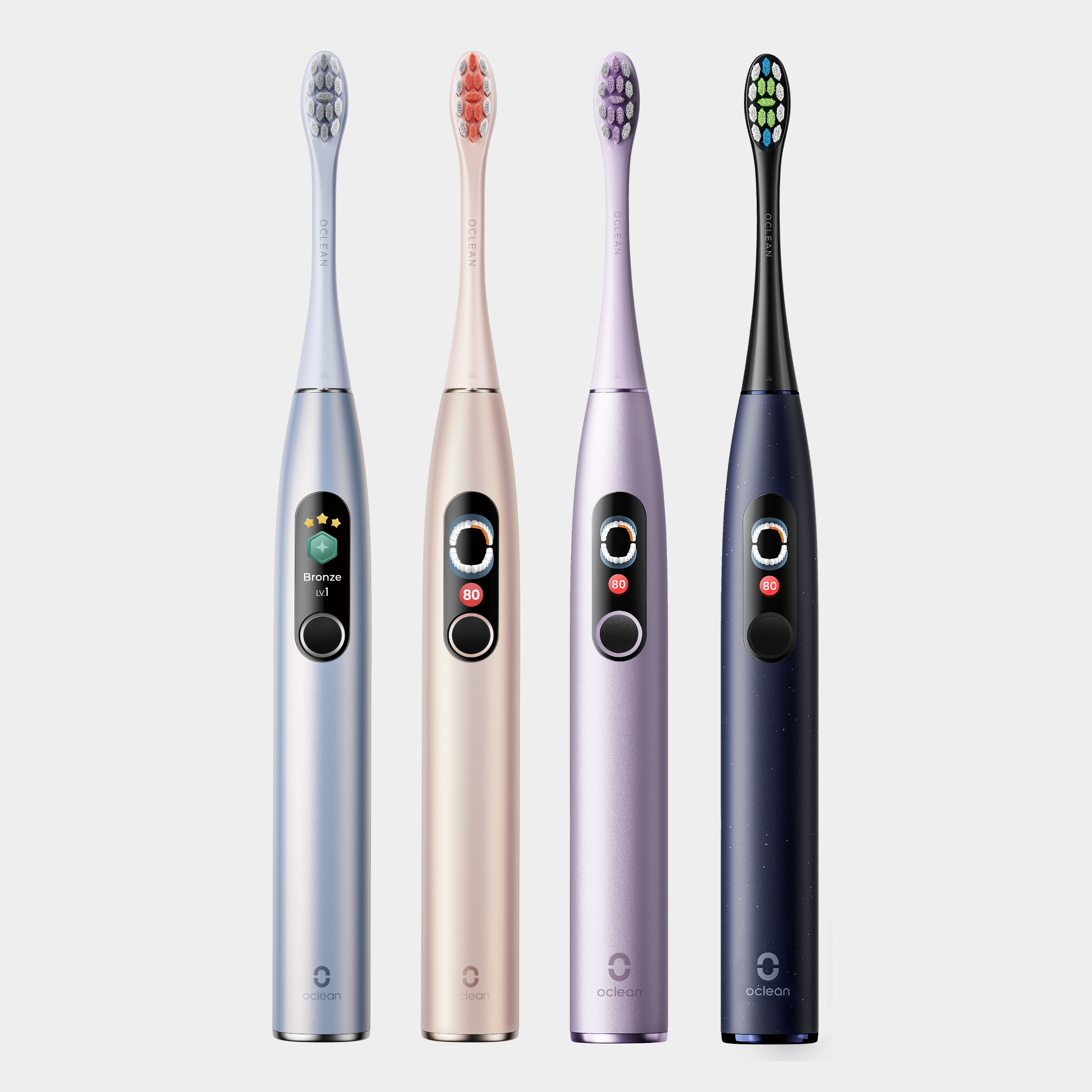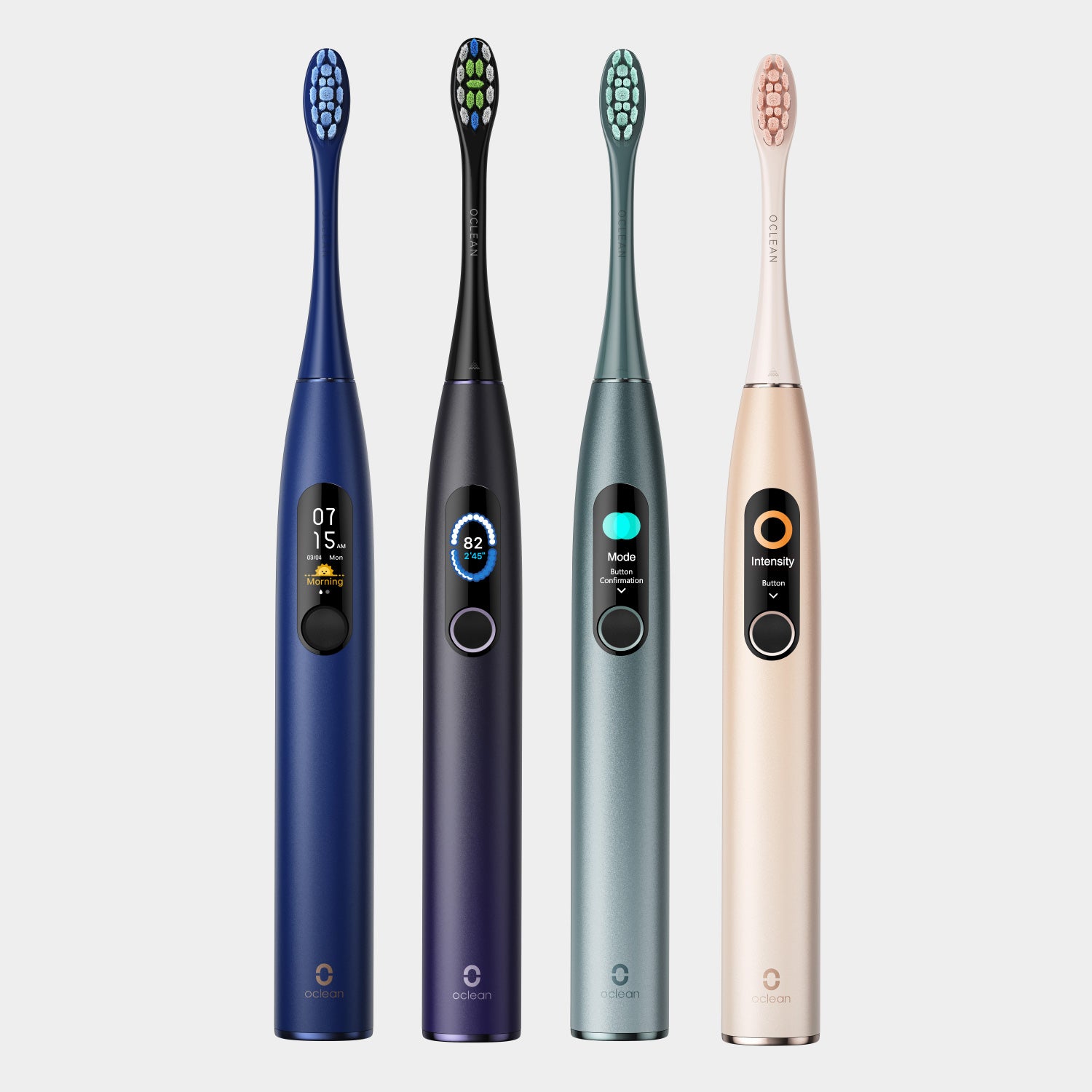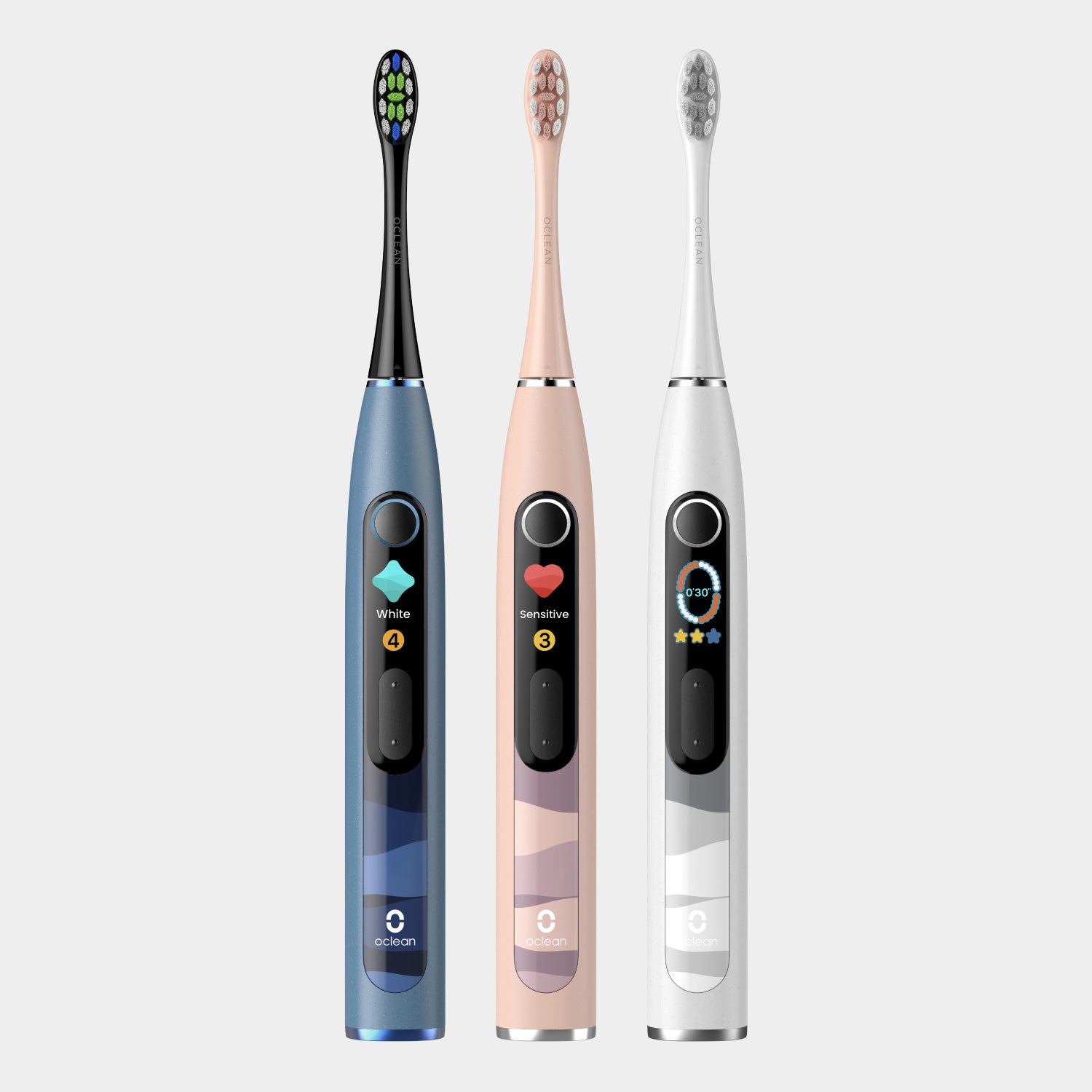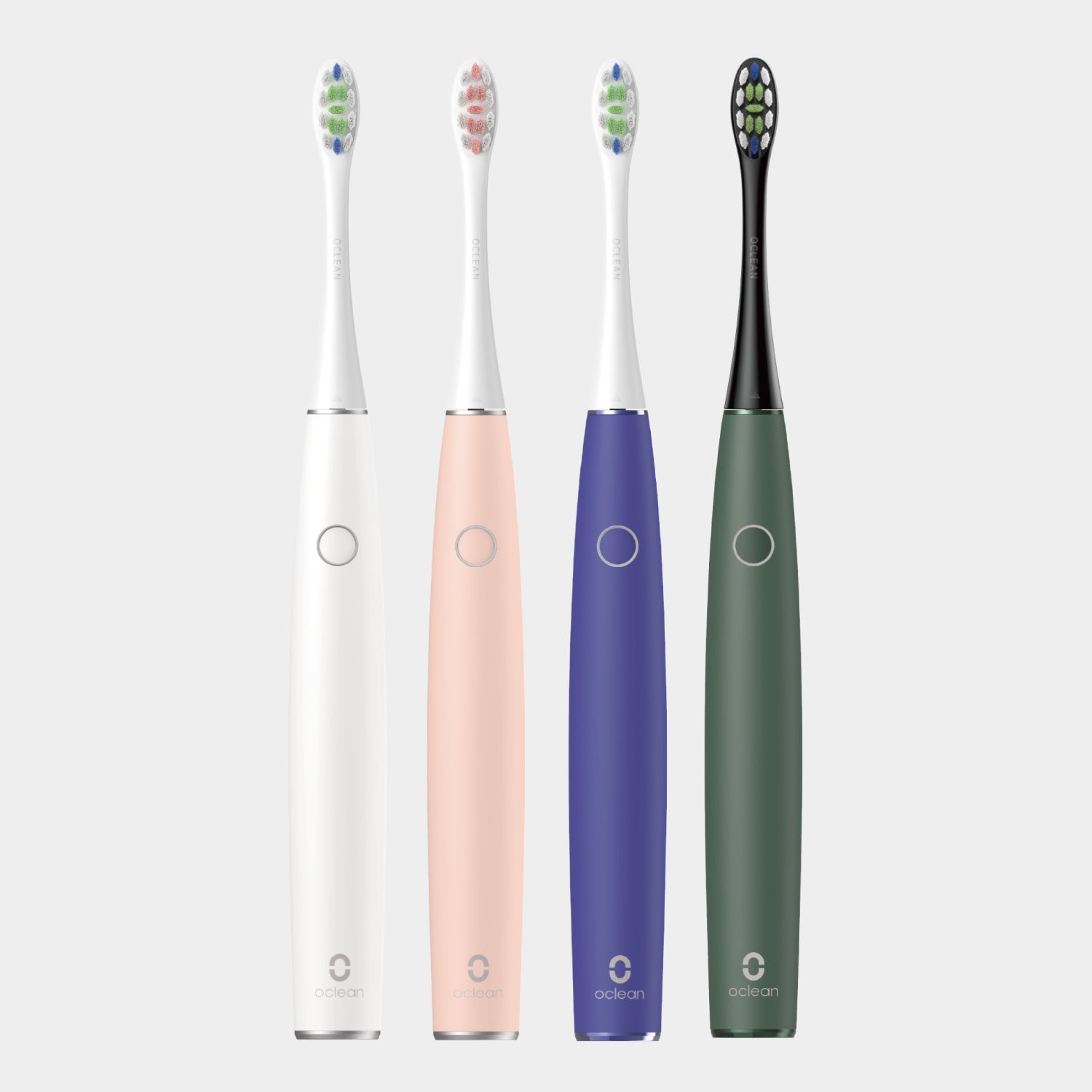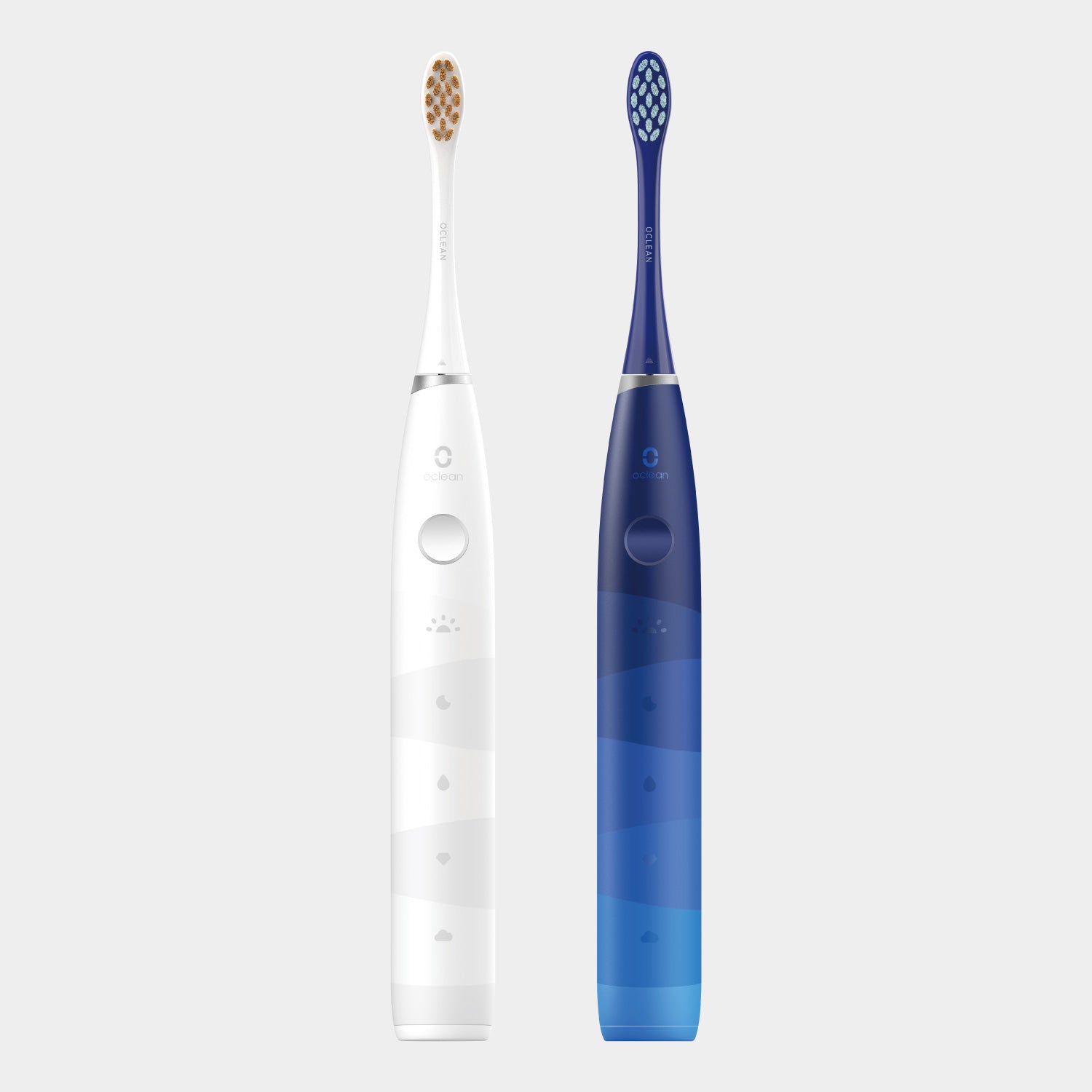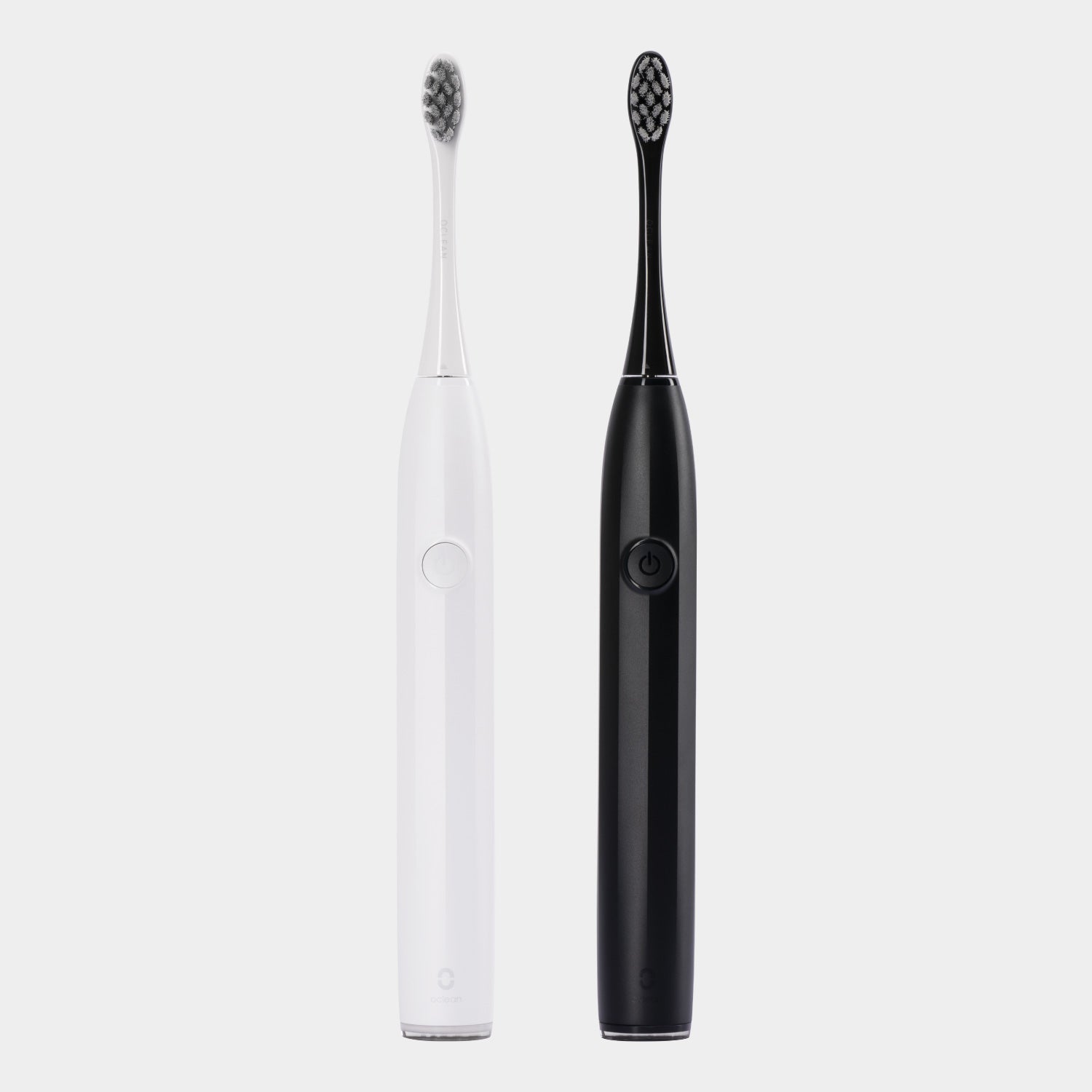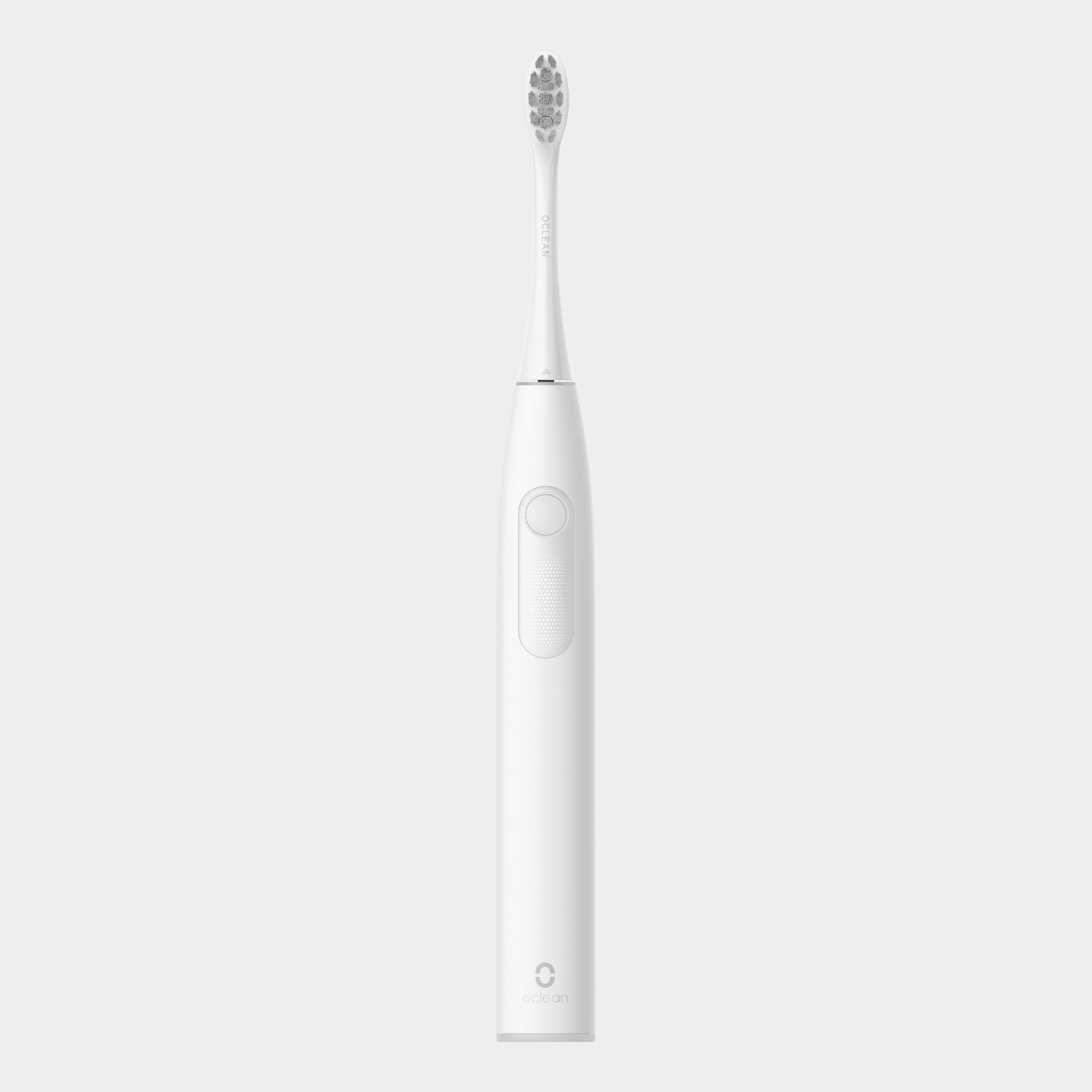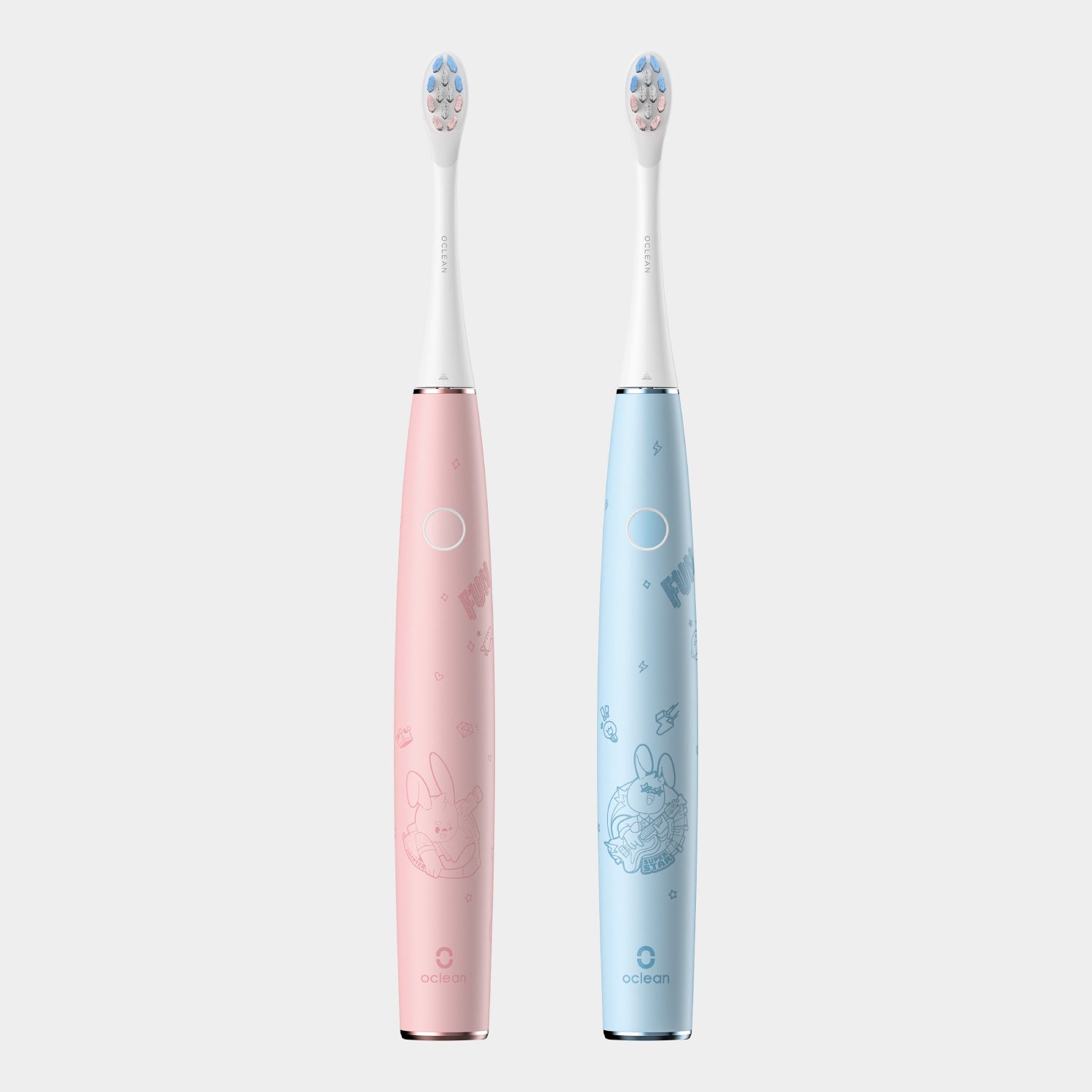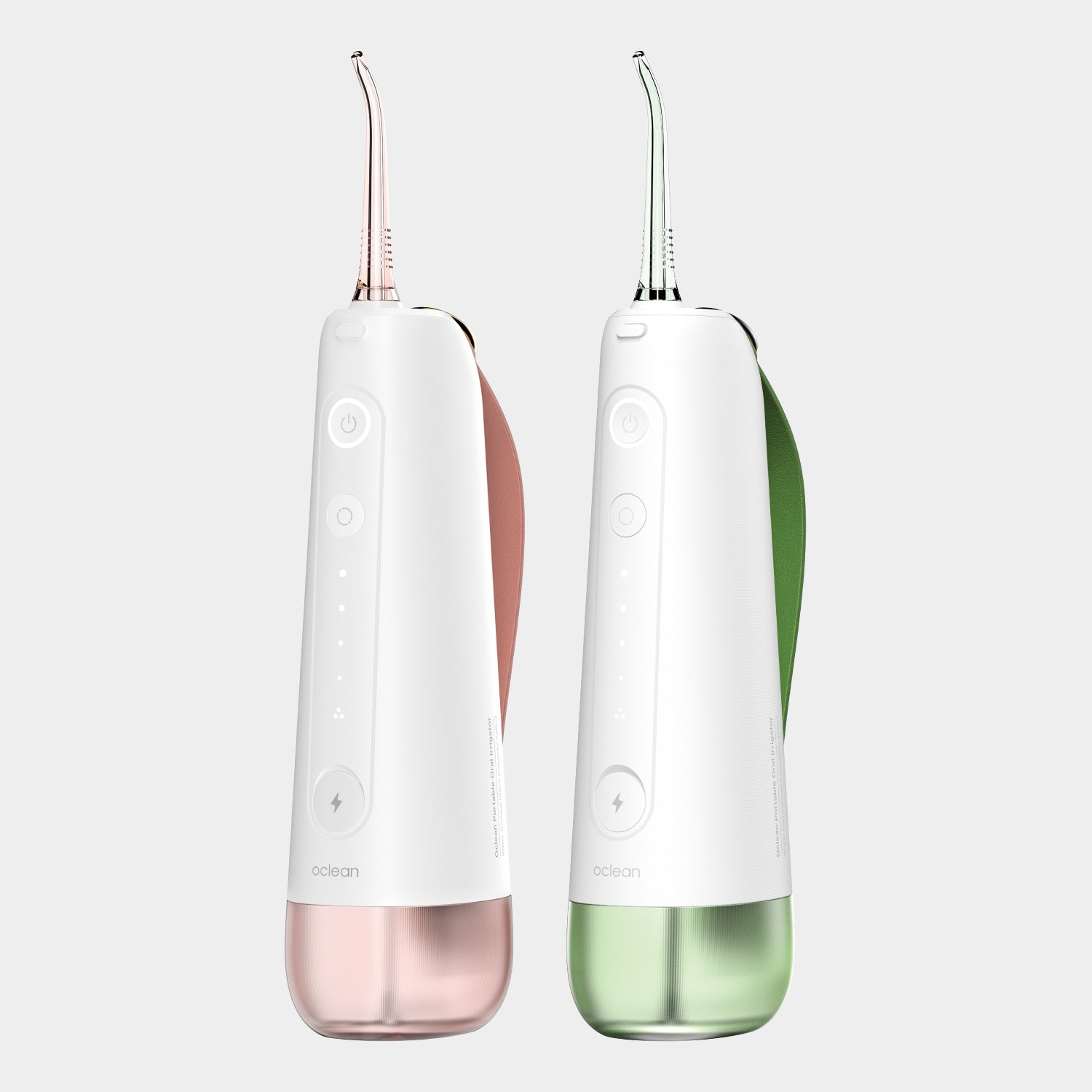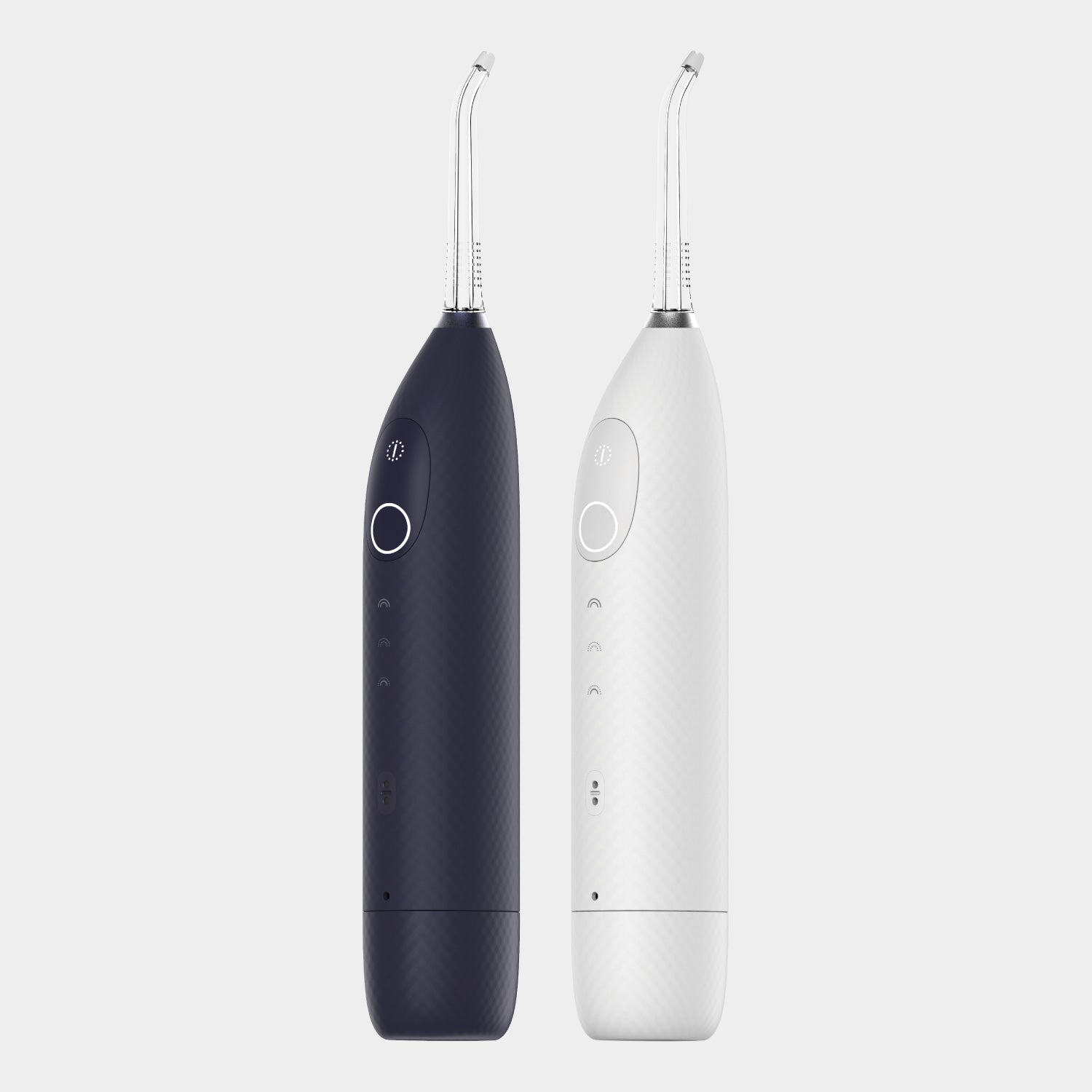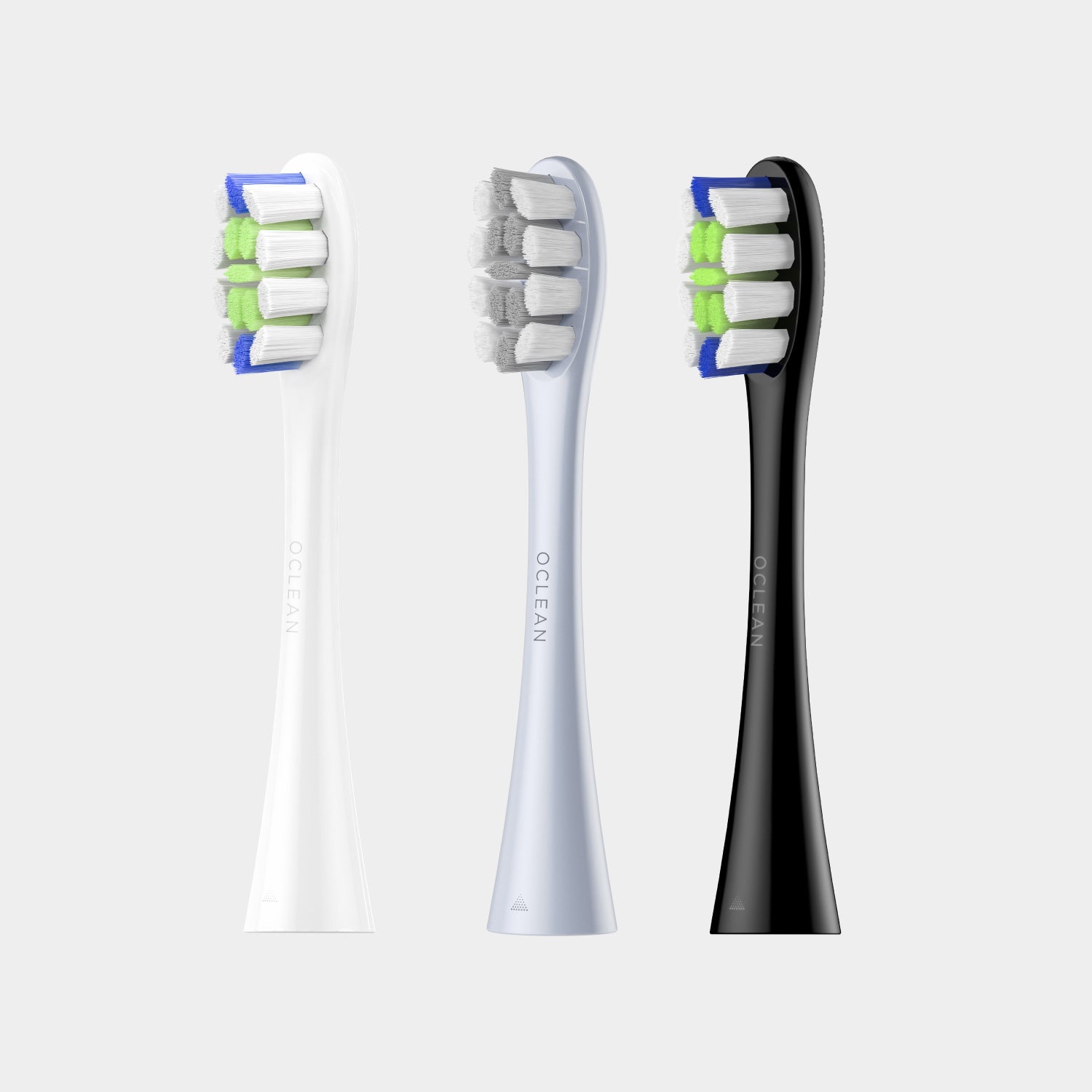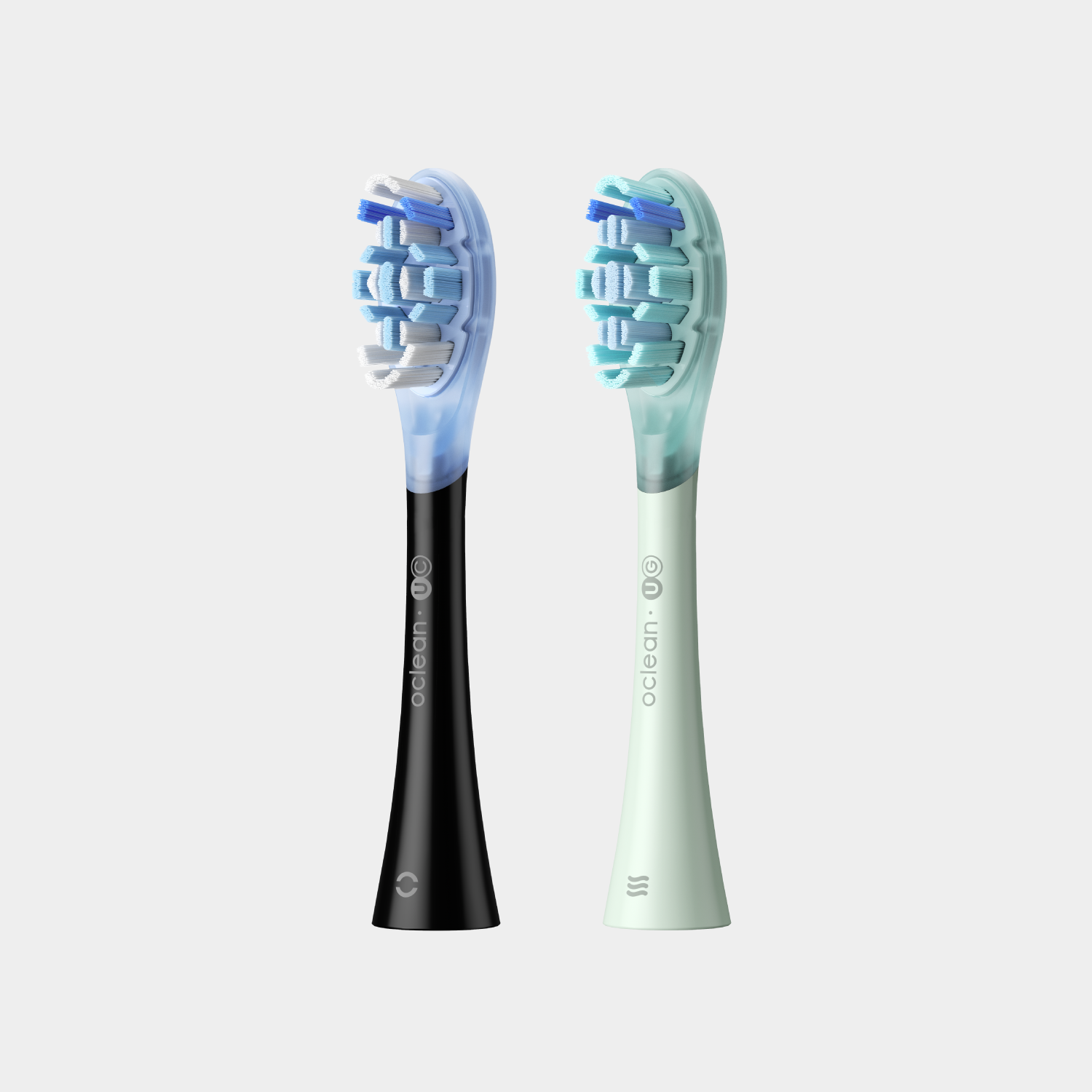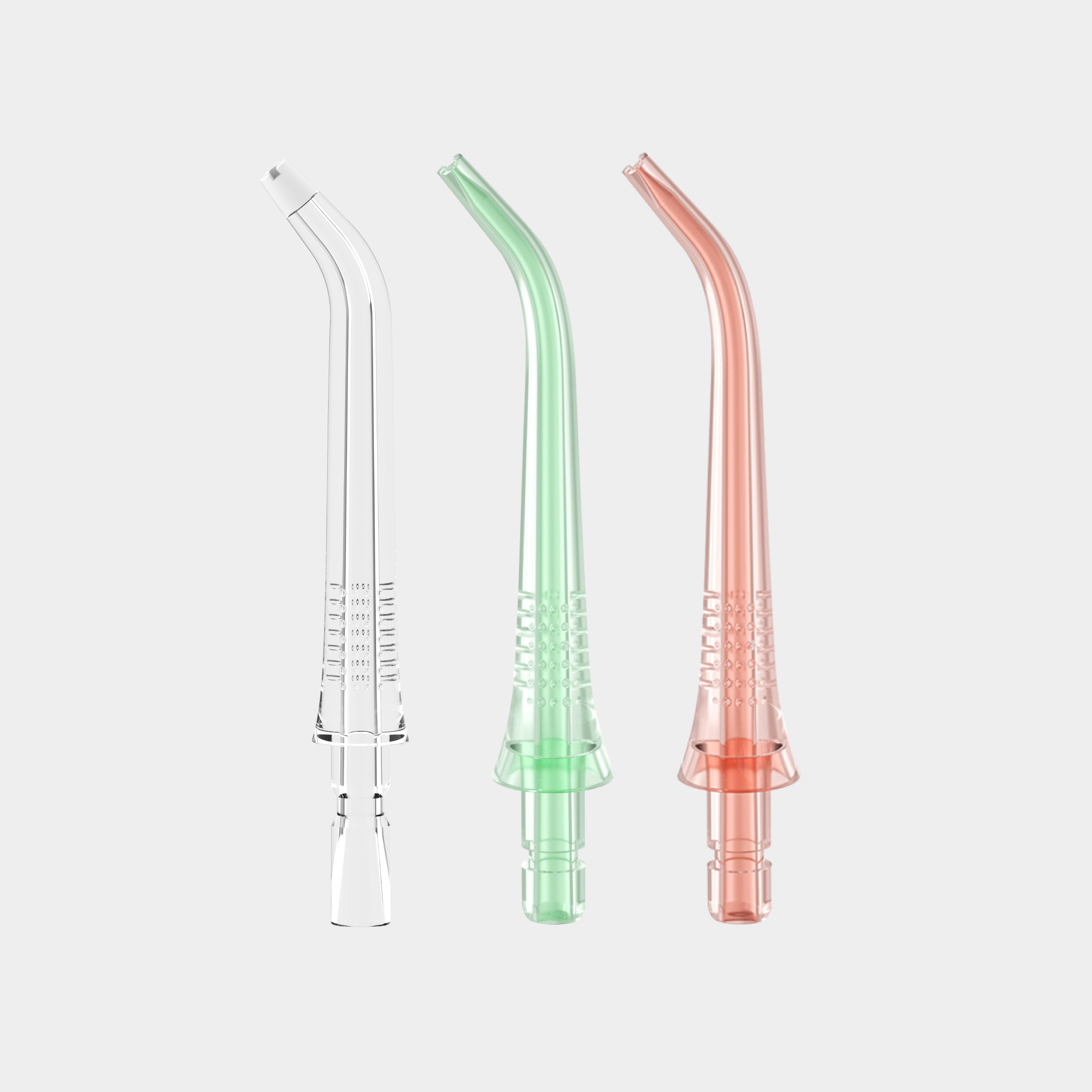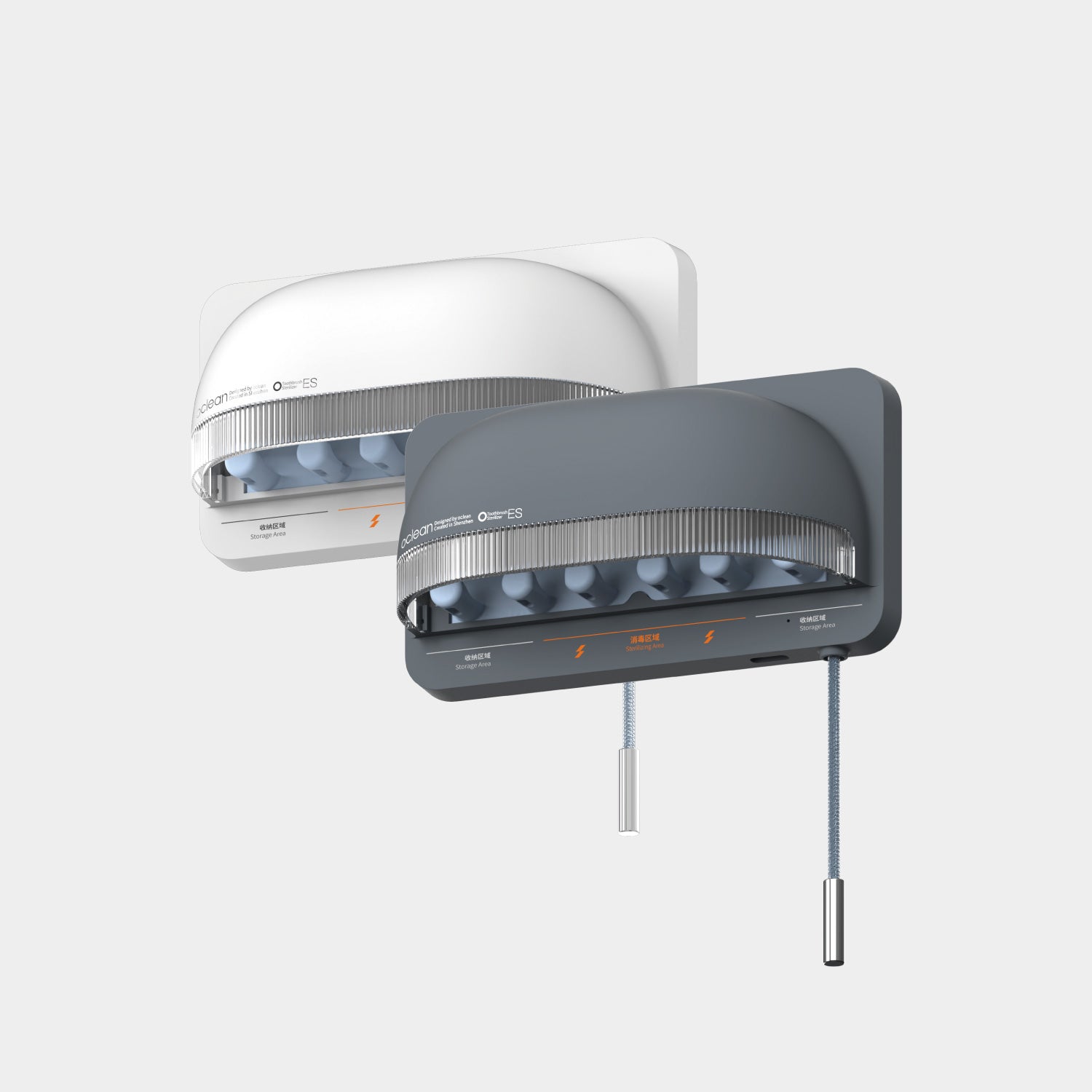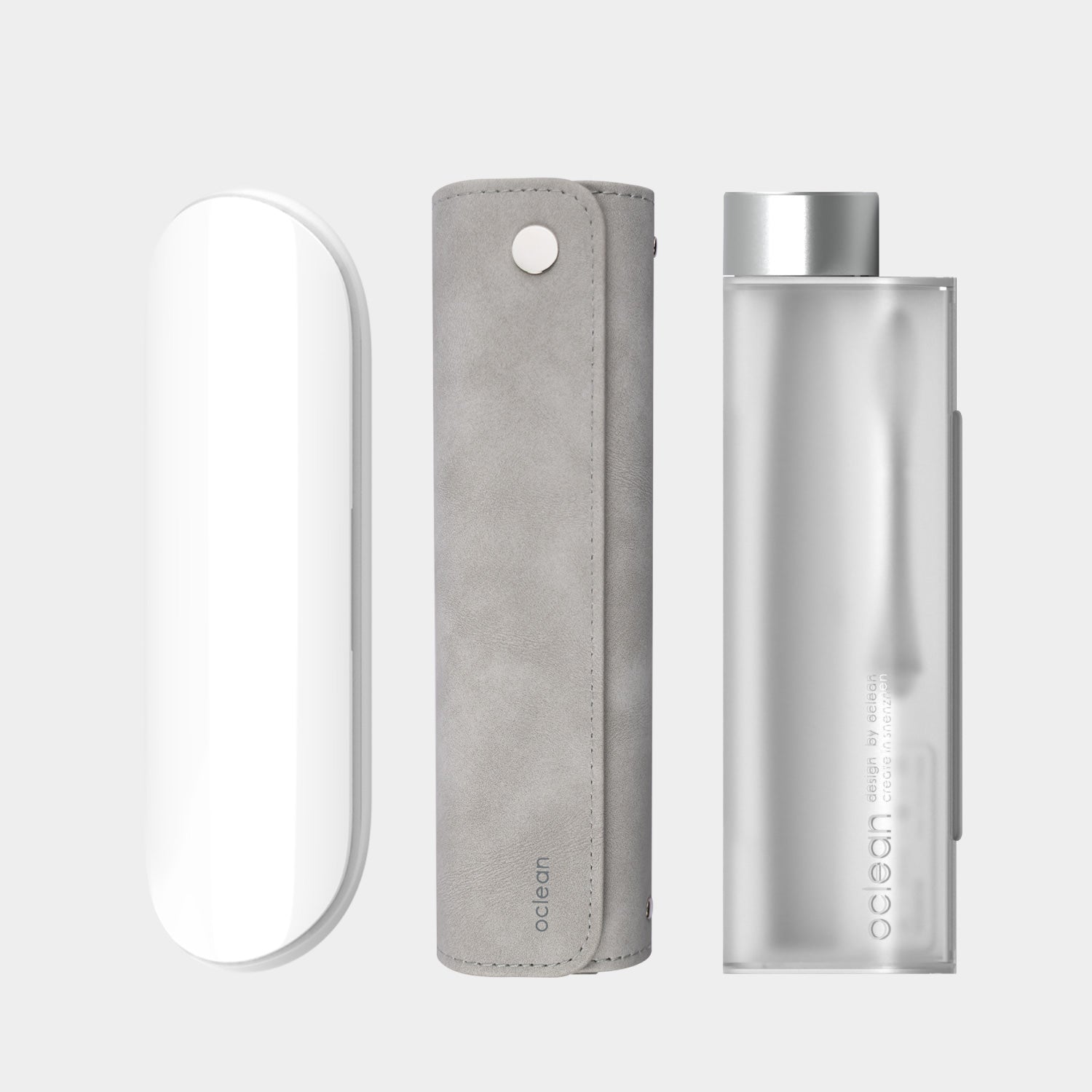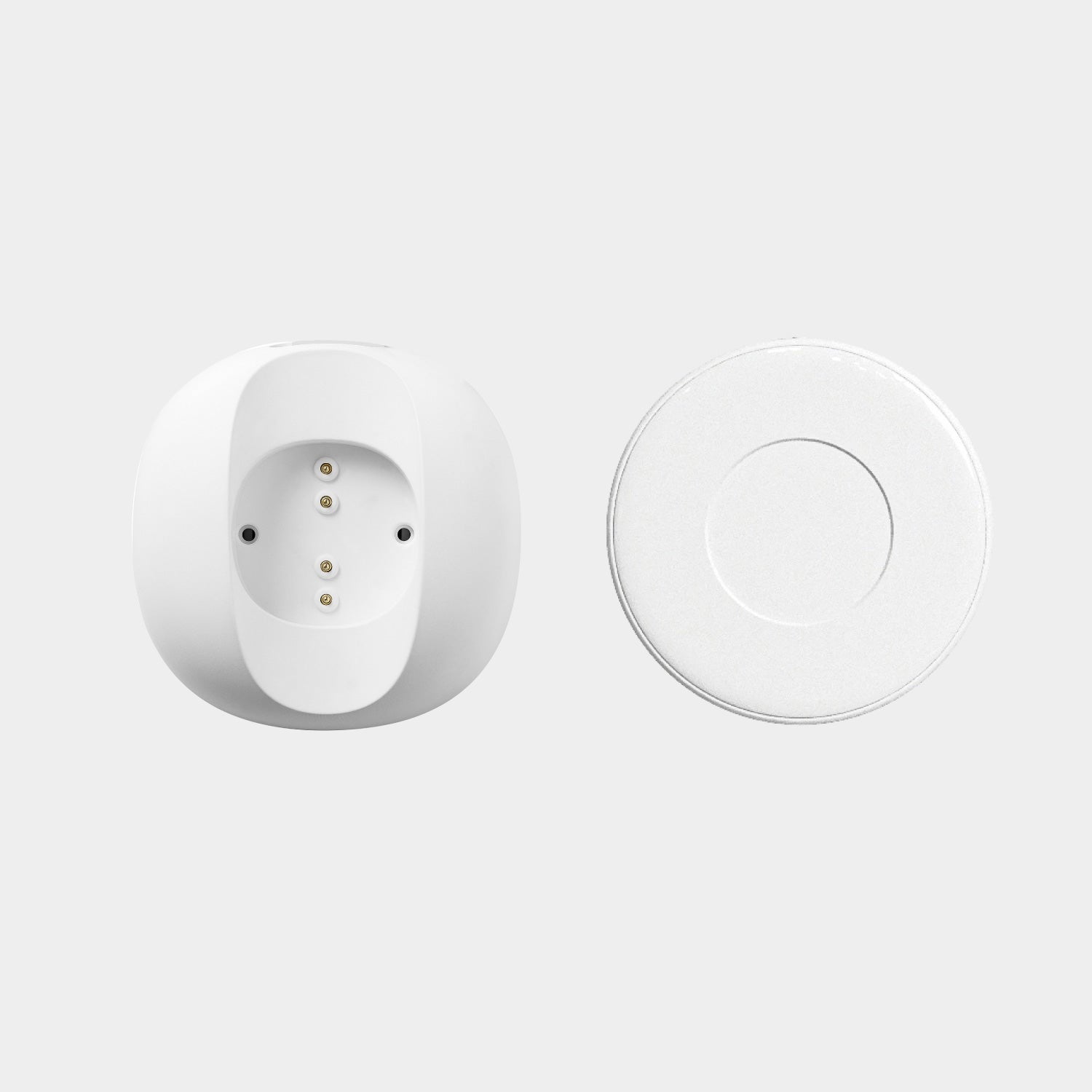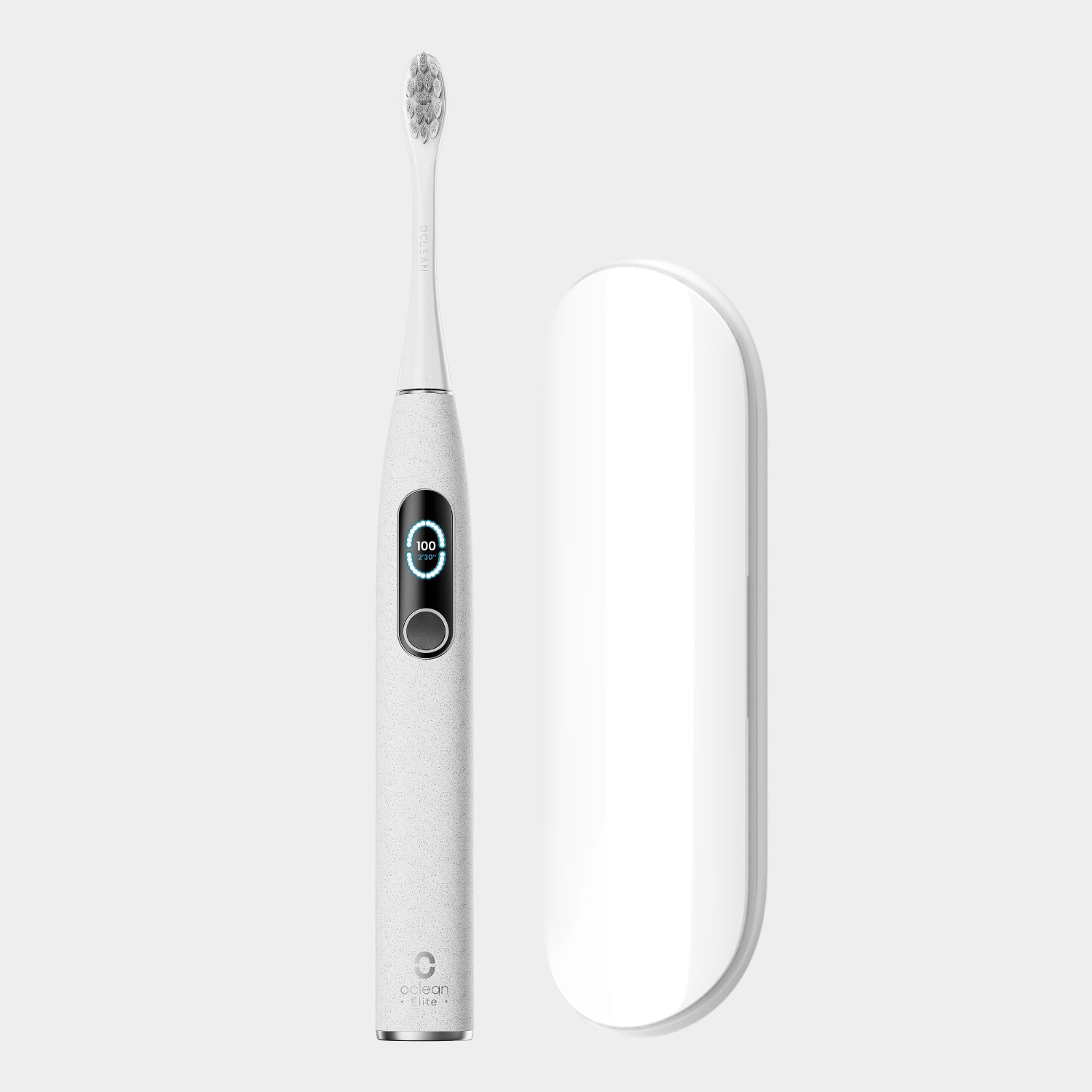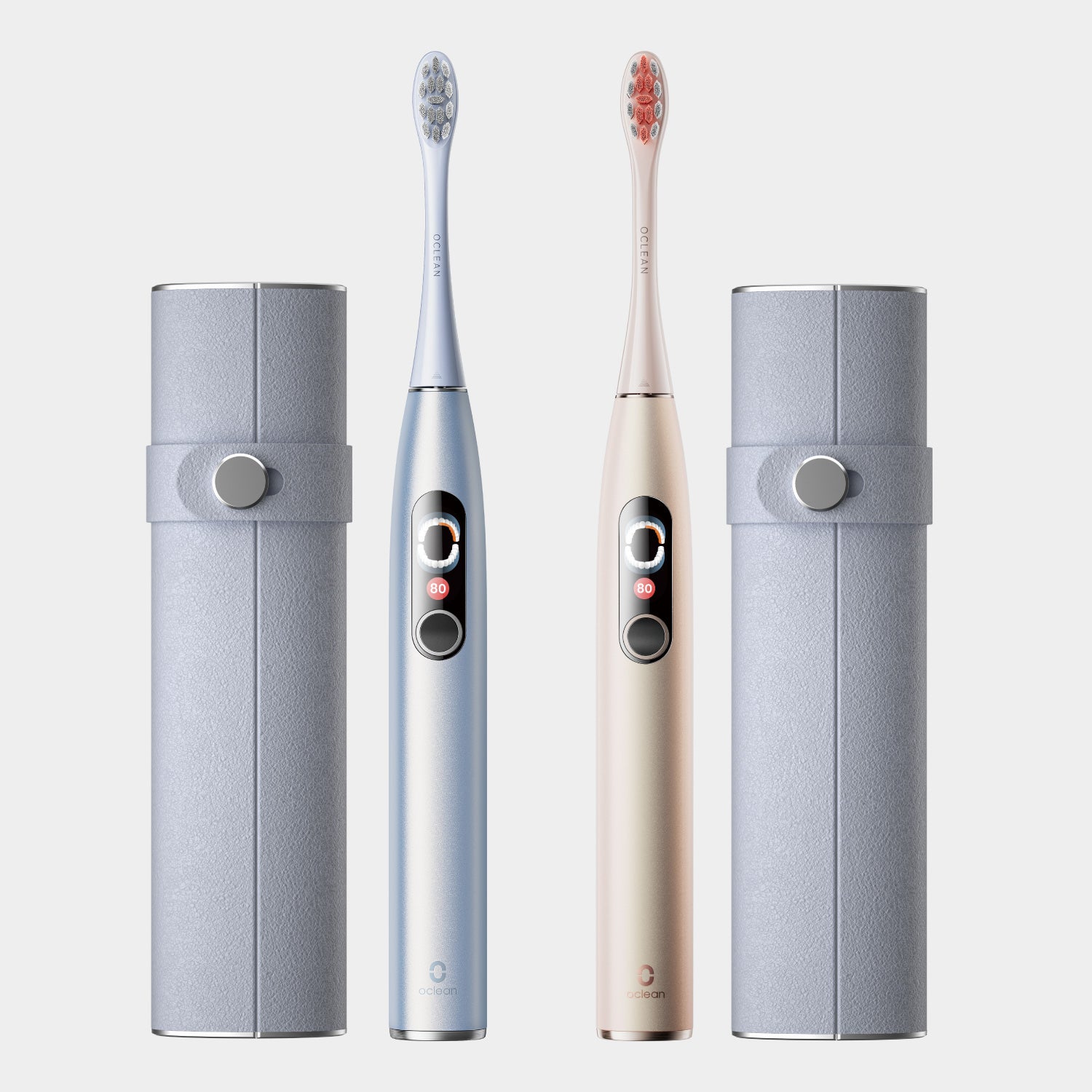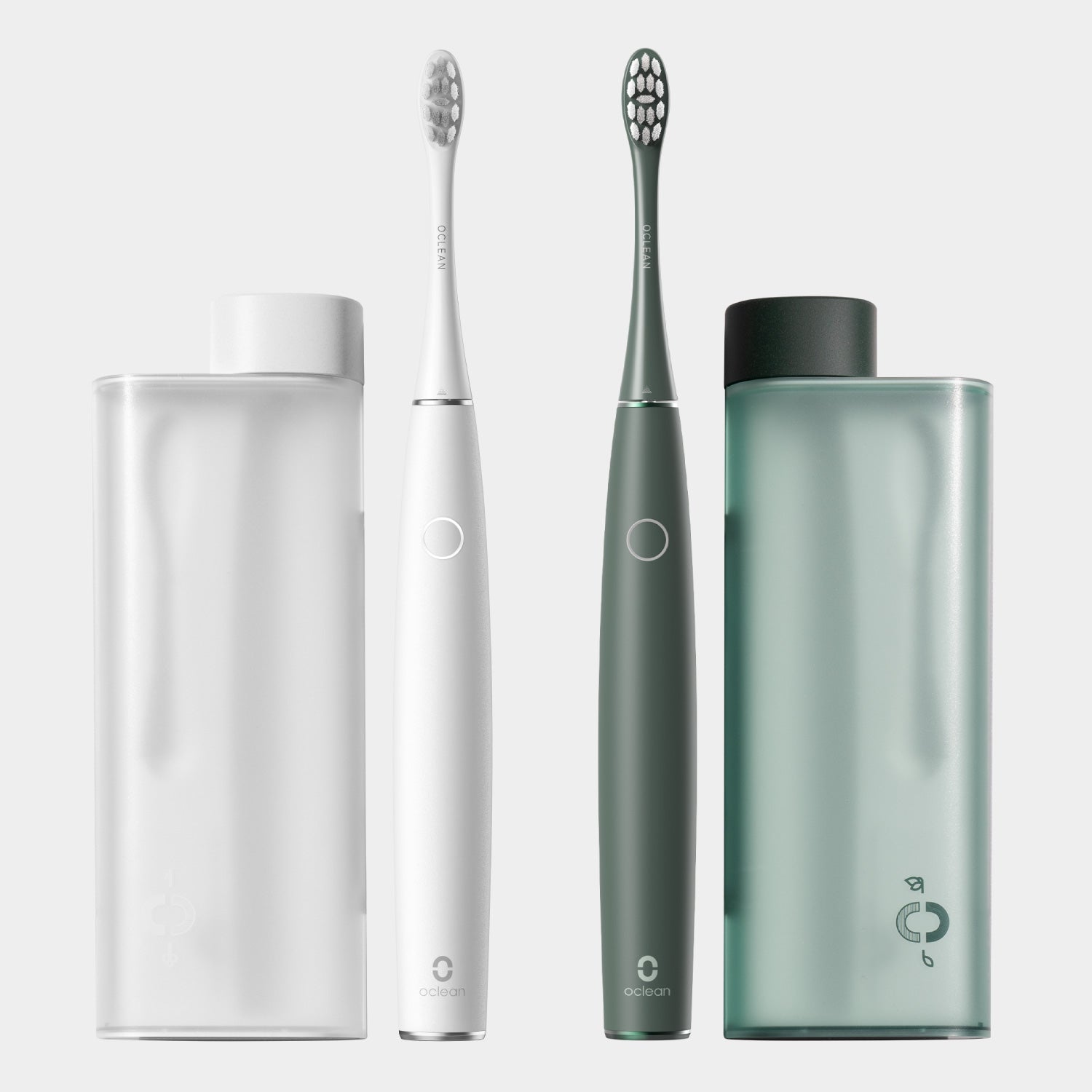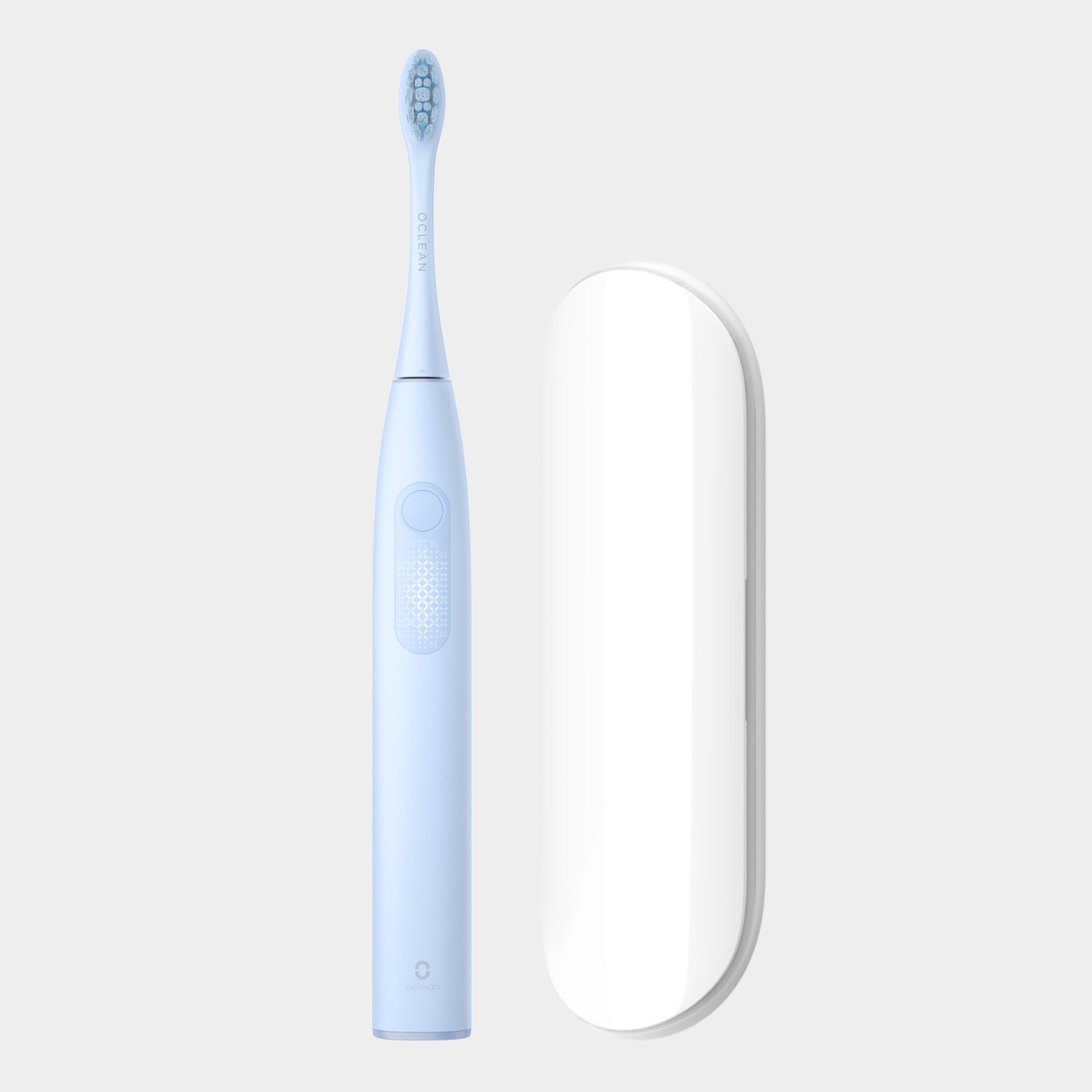September 12, 2021
When It Comes to Water Flossing - Oclean W10 or Oclean W1?

No matter how good an electric toothbrush you have sitting on your sink side, any dentist will tell you no amount of sonic power negates the need to floss.
Water flossers are fast becoming the norm for a comprehensive oral hygiene routine, blasting away plaque in an altogether less manual way.
Technology is often adopted to enhance cleaning efficiency like, for instance, Pulse Technique and Air & Micro-droplet Technology.

Pulse Technique
Oclean W10 Oral Irrigator adopt this technology to deliver high-frequency pulses of water to deep clean inter-dental areas and areas along the gum lines for a more efficient oral care experience. And comparatively more water is in need for each water flossing session with optimized clean efficiency but a comparatively less compact design.
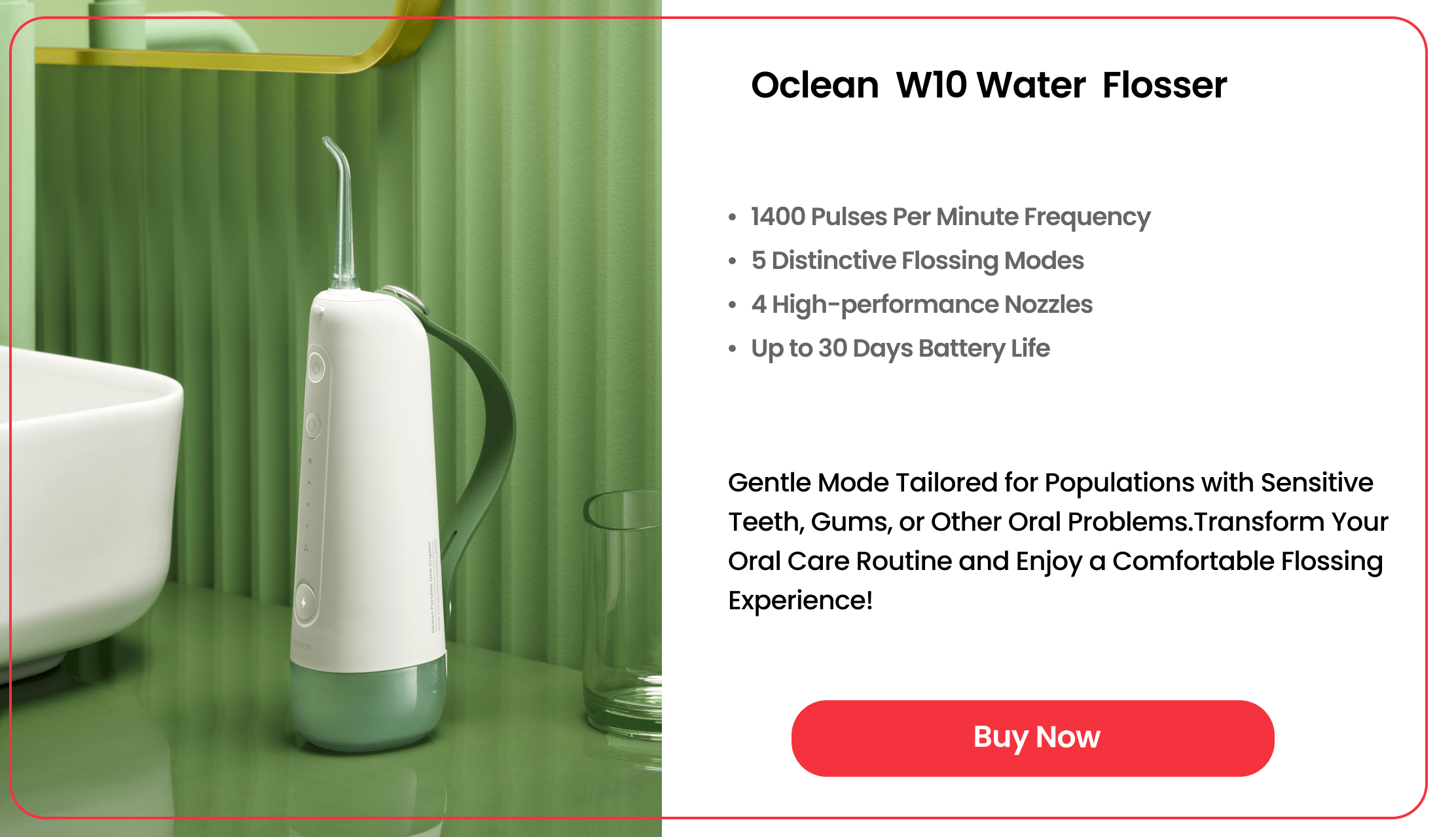
Air & Micro-droplet Technology
Oclean W1 Oral Irrigator adopts this technology to combine air with mouthwash or water to clean areas between the teeth and areas along the gum line for a floss session that feels extra effective at blasting away cavities for an extra helping of freshness. And a small amount of water is needed for each flossing session with slight compromising on the clean efficiency and, a more compact design.
Each technology has its own pros and cons, cleaning efficiency, portability, size, etc. are preferred accordingly, which means there is no perfect one but most suitable one.
No matter how good an electric toothbrush you have sitting on your sink side, any dentist will tell you no amount of sonic power negates the need to floss.
Thankfully, in 2021, that needn’t mean the gum-bleeding rigmarole of thin cord. Water flossers are fast becoming the norm for a comprehensive oral hygiene routine, blasting away plaque in an comparatively less manual way.
In other words, if regular old floss is the raggedy brush you use to sweep away the leaves from the garden patio, a water flosser is the pressure washer that unveils the original color of the stone beneath.
Do you really need to floss?
The narrative on flossing and how regularly you ought to be doing it has been conflicting, but pretty much any dentist worth their jar of lollipops agrees that some form of daily interdental brushing or flossing is essential for the healthy maintenance of your pearly whites.
If you're lacking in space between your teeth, flossing is especially necessary for eradicating plaque in areas your toothbrush simply won't reach in your twice-daily two minutes in front of the bathroom mirror. That's because brushing will only target the front and back of your gnashers, neglecting the harder-to-reach sides. Left uncleaned, this can lead to plaque buildup and, in turn, oral health ailments such as gum disease.
Do dentists recommend water flossers?
Just like an electric toothbrush is an easier way to clean your teeth than a manual brush, the main appeal of a water flosser, or oral irrigator as it is sometimes known, is its convenience. Water flossers are particularly well suited to anyone undergoing orthodontic work involving attachments on their teeth, such as fixed braces or Invisalign, for whom normal flossing is particularly difficult. For dentist-approved results, some suggest using both traditional floss and water flossers to dislodge food particles, then rinse away plaque, as the latter won’t replicate the scraping motion of former.
How do you use a water flosser?
The most important thing to remember when using a water flosser is to always place the tip inside your mouth before turning it on. Failing to do that is a sure-fire way to end up with a flooded mess around your sink. Water flossers shoot out a thin, pressurized stream between the teeth, most coming with various pressure settings to tweak the force with which it comes out. Be patient, it might take a couple of uses before you find a pressure that'll make the process feel natural.
Similarly, water temperature is a variable that will alter the irrigation experience, lukewarm being recommended so as not to cause any unnecessary discomfort. A minute a day will do the trick, which isn't all that much to ask after a two-minute brush, and the good ones will shut off for you thanks to built-in timers.
Will a water flosser remove stains from teeth?
Water flossers are primed to target hard-to-reach areas in the same way as regular floss, but some also boast a teeth-whitening ability with the addition of special tabs you can buy separately, which infuse the water being sprayed into your mouth. Waterpik claims its whitening model is more effective than any over-the-counter strips or home methods, and safer too, though you're unlikely to get any results of a Harley Street standard.
About Oclean
Oclean - strive for excellence - is a company devoted to providing professional & smart oral care for overall health and well-being.
More knowledge about flossing:
Does Flossing Whiten Teeth?
3 Reasons Why do My Teeth Hurt after Flossing
Related Readings:
Can You Bring an Electric Toothbrush on a Plane
How Many Calories Are in Toothpaste
What Happens if You Swallow Toothpaste
Sonic Toothbrush vs Rotating(Oscillating) Toothbrush


